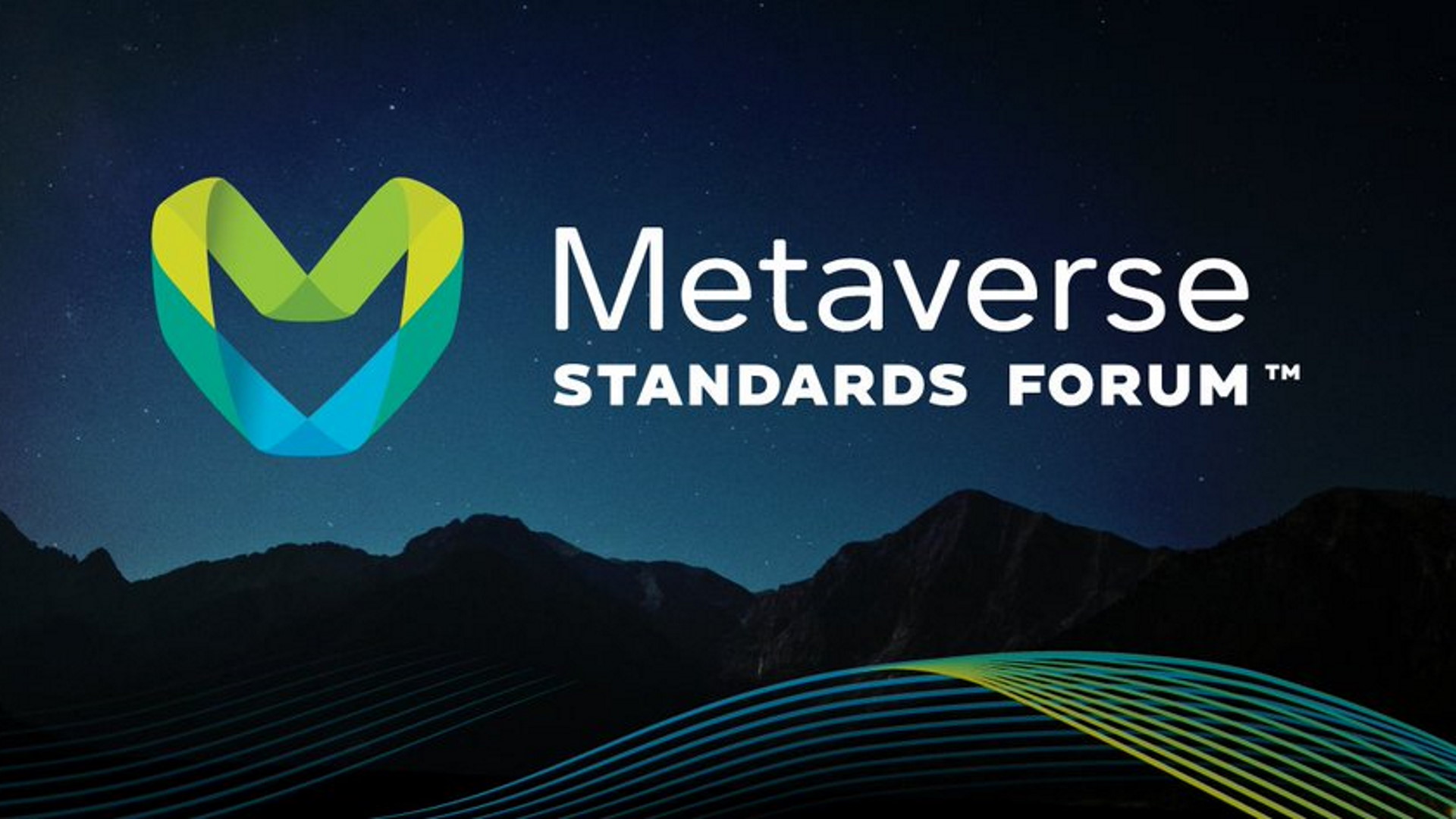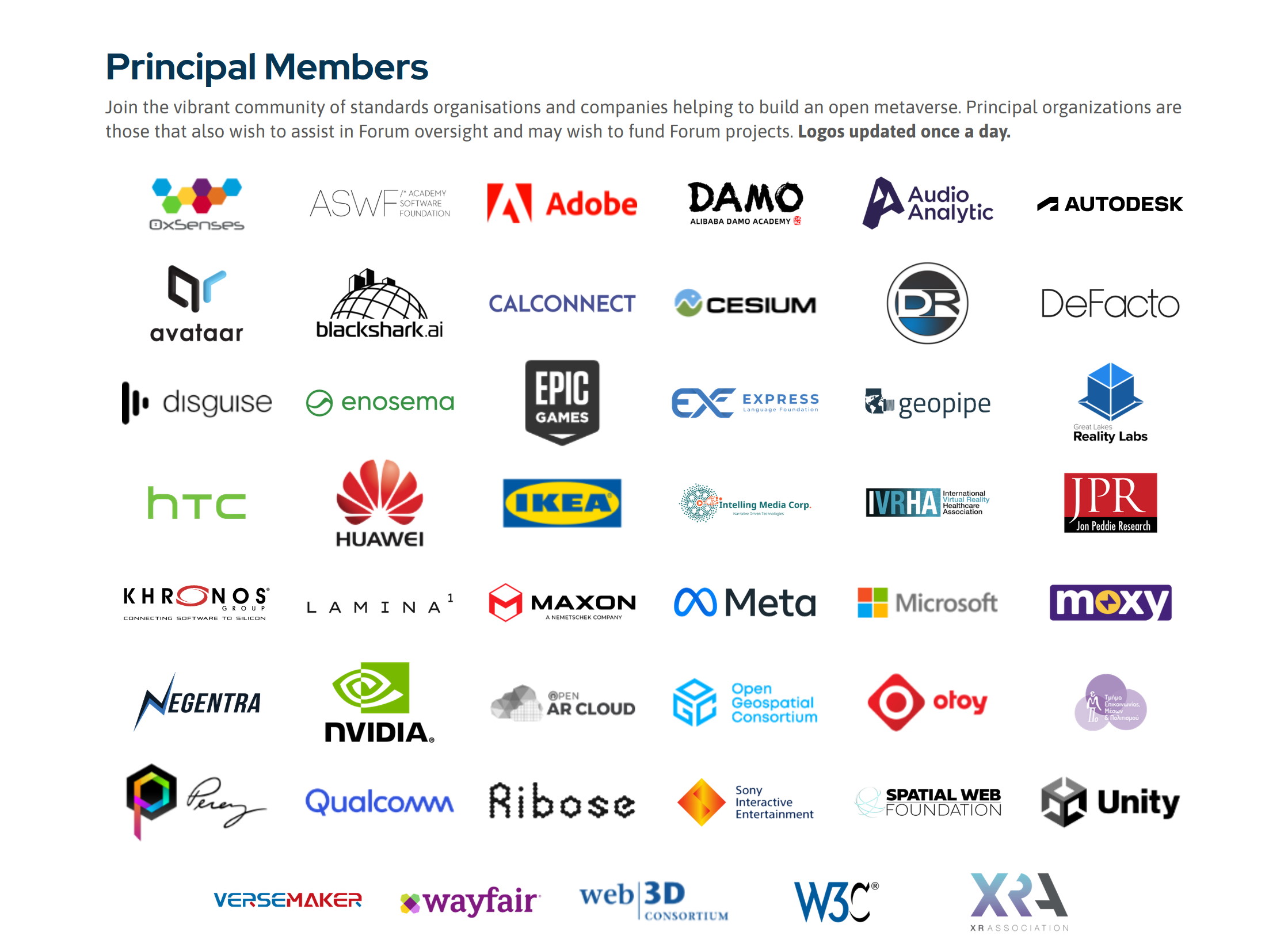I still don't know what the metaverse is, but it has a 'Standards Forum' now
Members include Microsoft, Epic Games, Sony, Nvidia, Unity, and other tech industry heavyweights.

PC gamers of a certain age may recall the Multimedia PC standard. First defined in 1991 by an assemblage of industry heavyweights, it established a baseline for PCs capable of handling multimedia content. The idea was to make it easier for consumers to know which PCs could and could not help usher them into the exciting new era of CD-ROM technology—and, one would assume, give them the confidence to take that step (and spend that money).
Now something similar is happening with the metaverse. Industry heavyweights including Epic Games, Micrososft, Nvidia, Sony, Unity, and of course Meta have come together to establish the Metaverse Standards Forum, which will "foster interoperability standards for an open metaverse."
Unlike the relatively straightforward job of setting a minimum PC specification, this group will not create standards for the metaverse, presumably because nobody really knows exactly what the hell the metaverse is at this point. They are very excited for it, though, and so to get the wheels turning faster, the goal here is to "coordinate requirements and resources to foster the creation and evolution of standards within standards organizations working in relevant domains."
"The metaverse will bring together diverse technologies, requiring a constellation of interoperability standards, created and maintained by many standards organizations," said Neil Trevett, president of forum host Khronos Group. "The Metaverse Standards Forum is a unique venue for coordination between standards organizations and industry, with a mission to foster the pragmatic and timely standardization that will be essential to an open and inclusive metaverse."
Khronos Group might sound like a villainous organization from a James Bond movie, but it's actually very legit. It's a non-profit established more than 20 years ago by hardware and software companies including AMD, Apple, Arm, Google, Huawei, Intel, Qualcomm, and Valve, and is the developer of well-known standards including OpenGL, Vulkan, and WebGL. It's a serious force in this business, in other words, and it's got other big players signing on to the process of setting the new metaverse standards.

"Building a metaverse for everyone will require an industry-wide focus on common standards," said Vishal Shah, vice president of Metaverse at Facebook parent company Meta. "The Metaverse Standards Forum can drive the collaboration that’s needed to make this possible, and Meta is committed to this work. Creators, developers and companies will all benefit from the technologies and experiences that will be made possible by common protocols."
Epic Games is also involved—unsurprising, given that Epic CEO Tim Sweeney is a long-time booster of the metaverse concept. "We are thrilled to help launch the Metaverse Standards Forum, a collaborative industry-led effort founded to accelerate the development and adoption of interoperability standards," Unreal Engine ecosystem vice president Mark Petit said. "Our goal is to build an open metaverse that enriches humanity and is home to a thriving, fair ecosystem with millions of creators."
The biggest gaming news, reviews and hardware deals
Keep up to date with the most important stories and the best deals, as picked by the PC Gamer team.
Nvidia's vice president of omniverse and simulation technology Rev Lebaredian actually took a swing at defining what the metaverse will be, calling it "an evolution of the Internet—from today’s 2D view of the web to an immersive 3D spatial overlay."
"For the metaverse to be successful and ubiquitous, it must be built on open standards, just like today’s 2D web—and our joining the Metaverse Standards Forum will help the community usher in a new era of collaborative and open 3D standards that will form the foundation of the metaverse," Lebaredian said.
Epic is working together with standards organizations and companies to help launch the @Metaverse_Forum, an industry-wide effort to ensure that everyone can participate fairly in the open metaverse.Learn more ⬇️ https://t.co/JEUTvvCfYrJune 21, 2022
It might seem a bit counterintuitive to be establishing standards for something that's still so vaguely defined (although I think Wes pretty much nailed it in 2021), but the standards may be what ultimately delivers us the definition we're lacking: The focus of the Metaverse Standards Forum will be on "implementation prototyping, hackathons, plugfests, and open-source tooling," in areas including interactive 3D assets, AR, VR, and XR, user-created content, avatars, identity management, privacy, and financial transactions. All told, it sounds like the group is conceptualizing the metaverse with roughly the same mindset as Lebaredian: It's the internet, but in 3D.
It's not exactly a man-on-the-moon moment, then, but if the internet is going to meaningfully grow—and it will, one way or another—the setting of industry-wide standards, dull though it may be, is necessary to keep the whole process from spiraling into chaos. What it actually leads to is anybody's guess at this point: It may prove to be little more than a branding exercise that falls by the wayside, as the MPC standard did, but it might also be the first big step toward the founding of a "real" metaverse—whatever that ultimately turns out to be.

Andy has been gaming on PCs from the very beginning, starting as a youngster with text adventures and primitive action games on a cassette-based TRS80. From there he graduated to the glory days of Sierra Online adventures and Microprose sims, ran a local BBS, learned how to build PCs, and developed a longstanding love of RPGs, immersive sims, and shooters. He began writing videogame news in 2007 for The Escapist and somehow managed to avoid getting fired until 2014, when he joined the storied ranks of PC Gamer. He covers all aspects of the industry, from new game announcements and patch notes to legal disputes, Twitch beefs, esports, and Henry Cavill. Lots of Henry Cavill.

